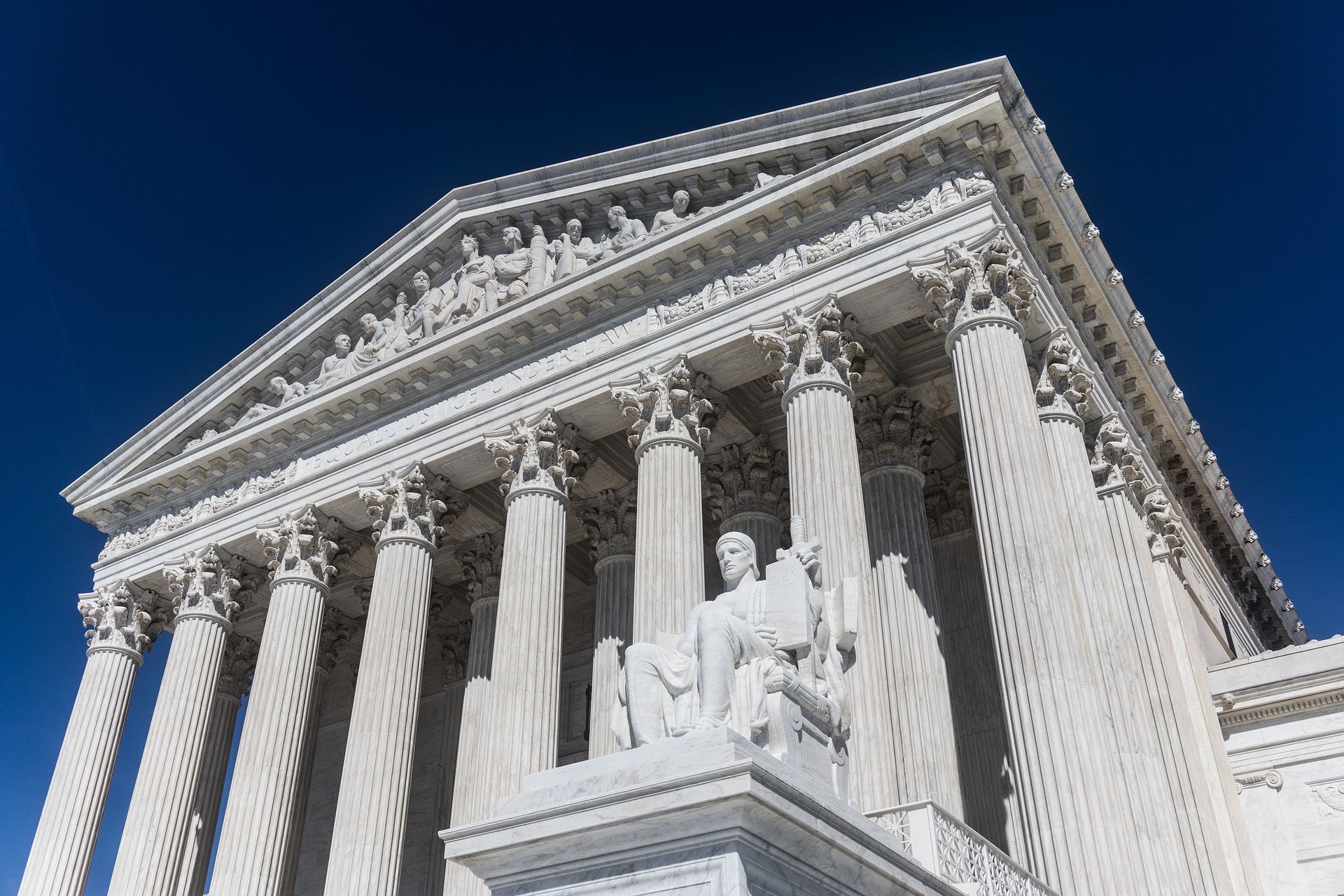
After its annual “long conference” earlier this week, the US Supreme Court announced that it will hear 12 additional cases this term, including a fascinating case involving the secretive “No Fly List” that bars thousands of US citizens from stepping onto a US-bound commercial flight.
US Supreme Court Will Consider Case Concerning Placement On “No Fly List”
The USA began maintaining a “No Fly List” after the 9/11 attacks in 2001, with the Bush Administration directing the Federal Bureau of Investigation (FBI) to maintain a list of people deemed too high a risk to “national security” to board a commercial flight to or via United States airspace. The FBI manages this list on behalf of the Department of Homeland Security (DHS).
In 2010, US officials stopped Yonas Fikre, a US citizen, while in Sudan. Fikre is Muslim and FBI agents quizzed him about his local mosque in Portland, Oregon. At the end of the interview, he was told he would be placed on the No Fly List…unless he agreed to be an FBI informant.
He refused and flew to the United Arab Emirates instead, where he claims he was tortured by secret police under the direction of US authorities. Eventually released, he tried to seek asylum in Sweden, but was denied.
Interestingly, the US eventually flew him home to Portland via private jet, while still denying his petition to be removed from the No Fly List.
While he was still in Sweden, Fikre sued the FBI, arguing his constitutional rights were violated (because the government did not give him any means to challenge his placement on the list).
The FBI responded by dropping him from the list and then seeking to dismiss the case as moot, which means the case has lost practical significance because the underlying controversy has been resolved. A federal district court in Oregon agreed.
But the Ninth Circuit Court of Appeals disagreed, asserting the government had not made it “absolutely clear” that the FBI would never again place Fikre back on the No Fly List for the same reason it did so in the first place. This is known as the voluntary cessation doctrine (is a case really moot when a party to the case voluntarily discontinues an allegedly unlawful action?).
The FBI responded that Fikre “will not be placed on the No Fly List in the future based on the currently available information.” But the Ninth Circuit said that is not good enough. First, the FBI did not admit error in placing him on the list in the first place. Second, it did not indicate that it would do anything different next time, since it continued to justify Fikre’s original detainment as “in accordance with applicable policies and procedures.”
Now the FBI has appealed that Ninth Circuit ruling, asking the Supreme Court to declare that it need not declare wrongdoing and that Fikre’s lawsuit is indeed moot.
Key Factors For This Case
At the root here is the voluntary cessation doctrine, specifically whether the FBI can simply resume its conduct that brought the lawsuit in the first place once the lawsuit is dismissed.
Fikre has been removed from the No Fly List “permanently” but “based on the currently available information.” Legally, that means nothing…it means he’s off the list until the FBI decides he is back on the list.
The fact that the Supreme Court decided to hear this case does not necessarily suggest it will overrule the Ninth Circuit: there is currently a circuit split on this issue, with the Fourth and Sixth Circuits ruling, in similar cases, that the issue was moot.
These sorts of cases may lead to splits that do not fall along usual ideological lines. I could see Justice Gorsuch and Barrett or Kavanugh joining with the Court’s three liberal members to declare that this issue is not moot. It will be interesting to see.
CONCLUSION
The nexus of law and travel always fascinates me and while the entire Supreme Court term is shaping up to be another interesting one, I will be following this particular case closely…and may even attend oral arguments (not scheduled yet).




Is the government incapable of doing a security screen at an airport? Even if someone were a terrorist, they could be searched very thoroughly. That would leave them with one significant weapon, their bare hands. I suppose if 50 of these terrorists boarded an A320 or 737 flight, they could threaten to strangle the remaining 100 passengers one at a time. They could all flush clothes down the toilet to stuck them up.
I think it was close to a decade ago that the Swedish security police paid over $150k at the time to charter a plane to fly Fikre to the US, and the cost for returning him to the US as a rejected asylum seeker landed on the Swedish taxpayers at least initially. I don’t recall us ever settling the bill with the Swedish government for that, but the Swedish government has long been a US tool and so a lot ends up forgiven.
“ the US eventually flew him home to Portland via private jet, while still denying his petition to be removed from the No Fly List.”
No, the Swedes did it for us, at least initially.
I am pretty sure this got coverage in the Swedish government-funded news about 7 years ago.
Here is one report in Swedish from the largely taxpayer-funded media:
https://www.svt.se/nyheter/inrikes/utvisning-kostade-skattebetalarna-1-3-miljoner
That’s quite interesting. Thanks for sharing link.
Over the years I have been given updates about US citizens who had applied for asylum in a number of Schengen countries. This guy’s was one of those cases, and I found it to be one of the relatively less whacky asylum applications from US citizens at that.
During the pandemic — and at least in part to try to limit the USG’s liability/exposure/embarrassment/tool loss risk from stranding Americans abroad using the no-fly-list — a waiver system was put in place to temporarily whitelist for air travel those US citizens abroad who happened to be blacklisted via the NFLs. The government and its games are just a sign that governments aren’t saints and really need to be taken to task for extra-judicial punishment.
The Supreme Court really needs to step in and force a decision on this issue. The government should not be able to continue an unconstitutional practice simply by dint of abandoning the restriction on the individual n question while continuing it for countless others.
The
The US Dept of Homeland Security is quite an organization and they have the power to do almost anything they want with you as a traveller and a citizen, of any country..
The Supreme Court ought to declare the No Fly List unconstitutional on its face.